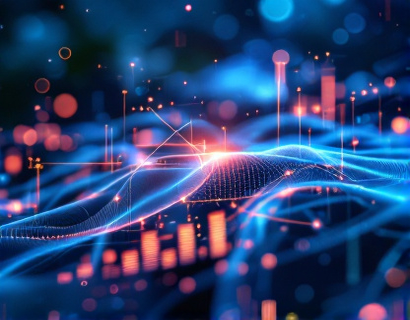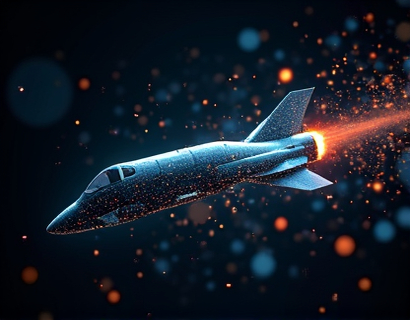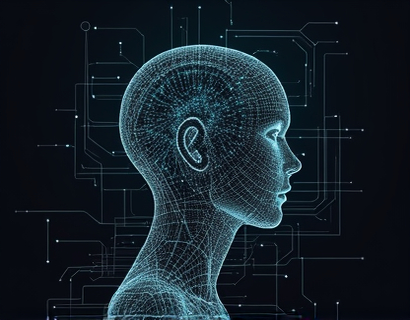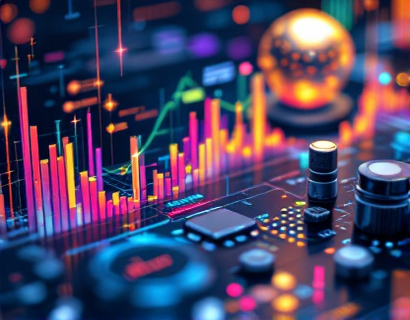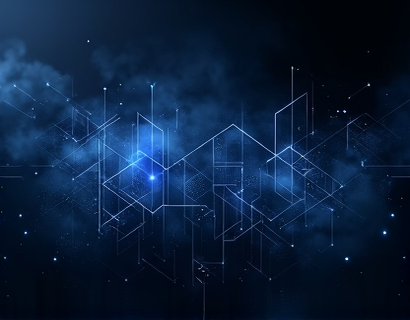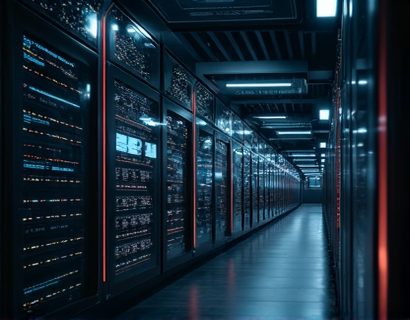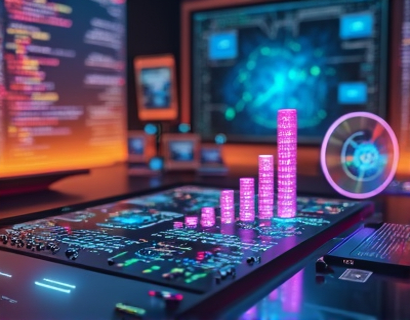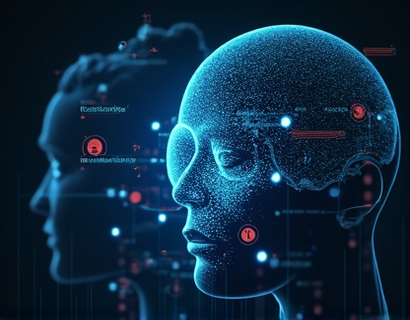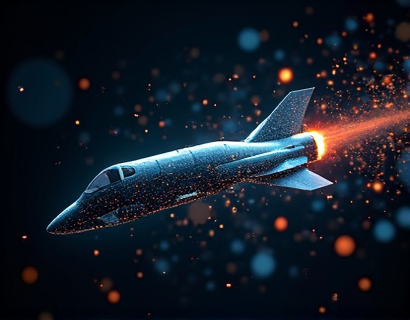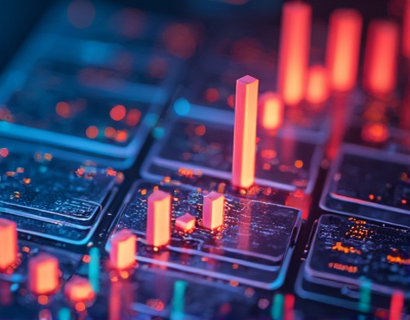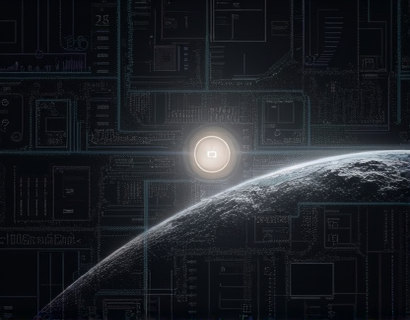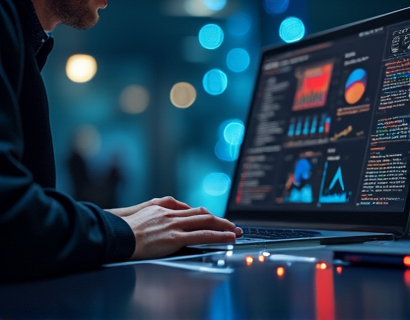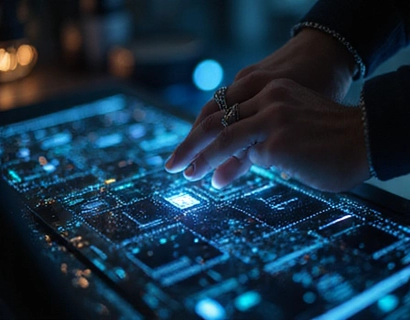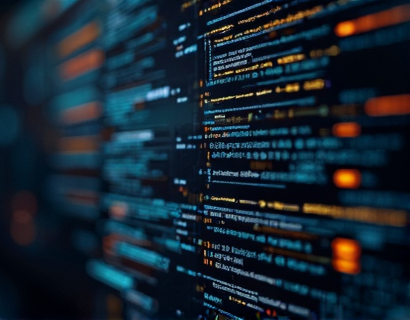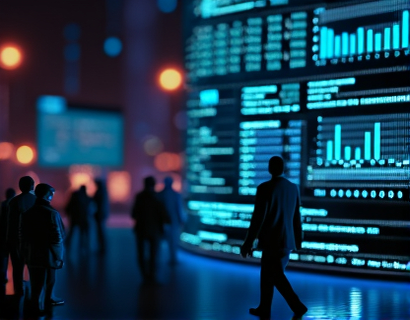AI and Crypto Convergence: Pioneering Intelligent Blockchain Solutions for the Future
The intersection of artificial intelligence (AI) and cryptocurrency is a rapidly evolving domain that promises to redefine the future of finance and technology. This convergence, often referred to as the synergy between AI and blockchain, is driving unprecedented innovation, offering new opportunities, and addressing longstanding challenges in both fields. This article delves into the dynamic relationship between AI and cryptocurrency, exploring how intelligent blockchain solutions are shaping the next generation of financial systems and technological advancements.
The foundation of this convergence lies in the unique capabilities of both AI and blockchain technology. AI, with its ability to process vast amounts of data, learn from patterns, and make predictions, brings a level of intelligence and automation that can significantly enhance the efficiency and security of blockchain networks. On the other hand, blockchain's decentralized, transparent, and immutable nature provides a robust framework for AI to operate in a trustless environment, ensuring data integrity and reducing the risk of fraud.
Enhancing Blockchain Security with AI
One of the primary applications of AI in the blockchain space is security. Blockchain networks, while secure, are not immune to attacks. AI can play a crucial role in detecting and mitigating these threats. Machine learning algorithms can analyze transaction patterns and identify anomalies that may indicate malicious activity. For instance, AI-driven systems can monitor blockchain networks in real-time, flagging suspicious transactions and automating responses to potential security breaches. This proactive approach to security enhances the overall resilience of blockchain systems.
Moreover, AI can improve the security of smart contracts, which are self-executing contracts with the terms directly written into code. AI tools can scan smart contracts for vulnerabilities and potential bugs, ensuring that they function as intended and reducing the risk of exploits. This is particularly important as the adoption of smart contracts grows across various industries, from supply chain management to real estate.
Optimizing Blockchain Performance with AI
Blockchain technology, especially public blockchains like Bitcoin and Ethereum, faces challenges related to scalability and transaction processing speed. AI can help optimize these aspects by predicting network behavior and dynamically adjusting parameters to improve performance. For example, AI algorithms can analyze historical data to predict peak usage times and adjust block sizes or gas prices accordingly, ensuring smoother transaction processing during high-demand periods.
Additionally, AI can enhance the development of layer 2 solutions, which aim to increase transaction throughput without compromising the security of the main blockchain. Machine learning models can optimize the routing of transactions across different layers, reducing congestion and lowering transaction fees. This not only improves user experience but also makes blockchain technology more accessible and practical for everyday use.
AI-Driven Cryptocurrency Trading and Investment
The trading and investment landscape in cryptocurrency has been revolutionized by AI. Algorithmic trading, powered by AI, allows for more precise and rapid decision-making in the volatile crypto markets. AI algorithms can analyze vast amounts of market data, including price movements, news sentiment, and social media trends, to make informed trading decisions. This level of analysis is beyond human capability, providing a competitive edge in the fast-paced crypto market.
Moreover, AI can help in risk management by identifying potential market trends and warning investors of impending risks. Machine learning models can predict price movements with a high degree of accuracy, enabling investors to make more informed decisions. This not only enhances the potential for higher returns but also helps in mitigating losses during market downturns.
Decentralized Finance (DeFi) and AI
Decentralized Finance (DeFi) is another area where AI and blockchain converge to create innovative financial solutions. DeFi platforms leverage blockchain technology to offer traditional financial services like lending, borrowing, and trading without intermediaries. AI can enhance DeFi by providing more sophisticated risk assessment tools, personalized financial advice, and automated portfolio management.
For instance, AI-driven credit scoring models can evaluate the creditworthiness of users in a decentralized manner, using data from various sources to make more accurate assessments. This can democratize access to financial services, especially in underserved regions. Additionally, AI can optimize yield farming strategies, automatically reallocating assets to maximize returns while minimizing risk.
Supply Chain Transparency and Efficiency
Beyond finance, the convergence of AI and blockchain is transforming supply chain management. AI can analyze data from blockchain-based supply chain networks to identify inefficiencies, predict demand, and optimize logistics. For example, machine learning algorithms can forecast inventory levels based on historical sales data and external factors like weather patterns or economic indicators. This ensures that supply chains are well-stocked and responsive to market changes.
Moreover, AI can enhance traceability and authenticity in supply chains. By combining blockchain's immutable ledger with AI's data analysis capabilities, companies can track products from origin to destination, ensuring compliance with regulations and ethical standards. This level of transparency builds trust among consumers and stakeholders, fostering a more sustainable and responsible business environment.
Challenges and Considerations
Despite the numerous benefits, the convergence of AI and blockchain is not without challenges. One of the primary concerns is the computational resource intensity of both technologies. AI models, especially deep learning algorithms, require significant computing power and energy, which can strain blockchain networks. Developing more efficient AI models and blockchain architectures is essential to address this issue.
Another challenge is the regulatory landscape. As AI and blockchain technologies evolve, regulatory bodies are still grappling with how to govern these innovations. Ensuring compliance while fostering innovation requires a balanced approach, and collaboration between technologists, policymakers, and industry stakeholders is crucial.
Future Outlook
The future of AI and blockchain convergence holds immense potential. As both technologies continue to mature, we can expect more sophisticated and integrated solutions that push the boundaries of what is possible. For instance, the development of quantum-resistant blockchain protocols, enhanced by AI, could pave the way for a new era of secure and resilient computing. Additionally, the integration of AI with other emerging technologies like the Internet of Things (IoT) and 5G networks will further amplify the impact of this convergence.
For tech enthusiasts and professionals, the intersection of AI and cryptocurrency offers a wealth of opportunities for innovation and growth. Engaging with this vibrant community, staying updated with the latest research, and participating in collaborative projects can lead to groundbreaking advancements. Whether you are a developer, researcher, or investor, the future of AI and blockchain is a landscape worth exploring.




